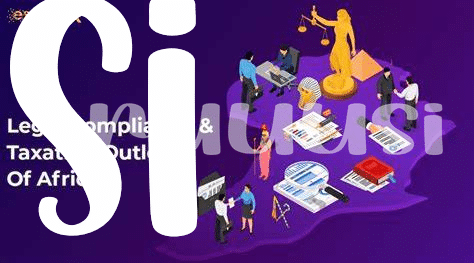Understanding the Regulatory Environment 🌍

In navigating the legal landscape of Bitcoin in South Africa, it is essential to comprehend the intricate regulatory environment governing the cryptocurrency realm. The regulatory framework in South Africa is continually evolving, with authorities working to establish clear guidelines for the use and trading of Bitcoin. Understanding these regulations is crucial for individuals and businesses engaging in Bitcoin transactions, as compliance is key to avoiding legal pitfalls. By delving into the regulatory intricacies, one can gain a comprehensive perspective on how Bitcoin is perceived and regulated within the South African context, providing a foundation for navigating the legal nuances of this digital currency within the country.
Implications for Individuals and Businesses 💼
Understanding the regulatory landscape of Bitcoin in South Africa is crucial for individuals and businesses operating in this space. The evolving regulations can have significant implications for how people engage with cryptocurrencies and the potential impact on commercial activities. It is essential to stay informed about the legal developments to ensure compliance and navigate the legal challenges effectively. Businesses need to adapt their practices to align with the regulatory requirements to avoid potential risks and uncertainties. Individuals must also be aware of the legal implications of using Bitcoin for transactions and investments. By understanding the legal framework surrounding Bitcoin in South Africa, individuals and businesses can make informed decisions and mitigate potential legal risks. Engaging proactively with the regulatory environment can help stakeholders thrive in this evolving landscape and contribute to the growth of the cryptocurrency ecosystem.
Taxation Considerations for Bitcoin Transactions 💸

With the growing popularity of Bitcoin transactions in South Africa, it’s crucial to address the taxation considerations surrounding this digital currency. The South African Revenue Service (SARS) has classified cryptocurrencies like Bitcoin as intangible assets, subjecting them to capital gains tax when disposed of. Individuals and businesses engaging in Bitcoin transactions need to keep detailed records of their activities, including the acquisition cost of the coins and the date of purchase. Failure to accurately report these transactions to SARS could result in penalties or legal consequences. Additionally, the treatment of Bitcoin for Value-Added Tax (VAT) purposes remains a complex issue, with ongoing discussions on whether VAT should apply to cryptocurrency transactions. As the regulatory landscape continues to evolve, staying informed about the tax implications of using Bitcoin is essential to navigating the legal framework effectively.
Legal Challenges and Bitcoin Fraud 🛡️

Legal challenges often arise in the realm of Bitcoin due to its decentralized and pseudonymous nature, making it susceptible to fraud and illicit activities. Fraudsters capitalize on the anonymity of Bitcoin transactions to engage in scams, money laundering, and other illegal activities, posing significant challenges for law enforcement and regulators. The lack of centralized authority and the transnational nature of Bitcoin transactions further complicate the identification and prosecution of perpetrators. As the adoption of Bitcoin continues to grow, addressing these legal challenges and combating fraud will require collaborative efforts between governments, law enforcement agencies, and the cryptocurrency community. Staying informed about the latest regulatory developments, such as upcoming regulatory changes for Bitcoin in South Korea, is crucial in navigating these legal complexities and protecting against fraud.
Key Legal Cases and Precedents 🔍
Key Legal Cases and Precedents in the realm of Bitcoin in South Africa have played a vital role in shaping the legal landscape. These cases have set precedents for how Bitcoin transactions are viewed and regulated within the country. One such significant case involved a landmark ruling that classified Bitcoin as an intangible asset rather than a currency, impacting how it is taxed and regulated. Another key legal case addressed issues related to Bitcoin fraud, highlighting the importance of robust security measures and enforcement mechanisms in the digital currency space. These legal cases and precedents serve as guiding principles for individuals and businesses navigating the complexities of Bitcoin transactions in South Africa, offering insights into best practices and pitfalls to avoid in this rapidly evolving legal domain.
Future Outlook and Legal Developments 🔮

As the legal landscape for Bitcoin continues to evolve, future outlook and legal developments in South Africa hold significant importance. Government authorities are increasingly recognizing the need to enact clearer regulations to govern the use of cryptocurrency. This shift signals a growing acceptance of Bitcoin within the country’s legal framework, providing individuals and businesses with more clarity and security when engaging in digital asset transactions. Moreover, ongoing legal developments aim to address challenges such as fraud and ensure the protection of investors. Looking ahead, the South African market is poised for further advancements in the regulatory sphere, aligning with global trends and fostering a more conducive environment for Bitcoin adoption and innovation. Stay informed about upcoming regulatory changes for Bitcoin in Solomon Islands through this link: Upcoming Regulatory Changes for Bitcoin in Slovenia.
